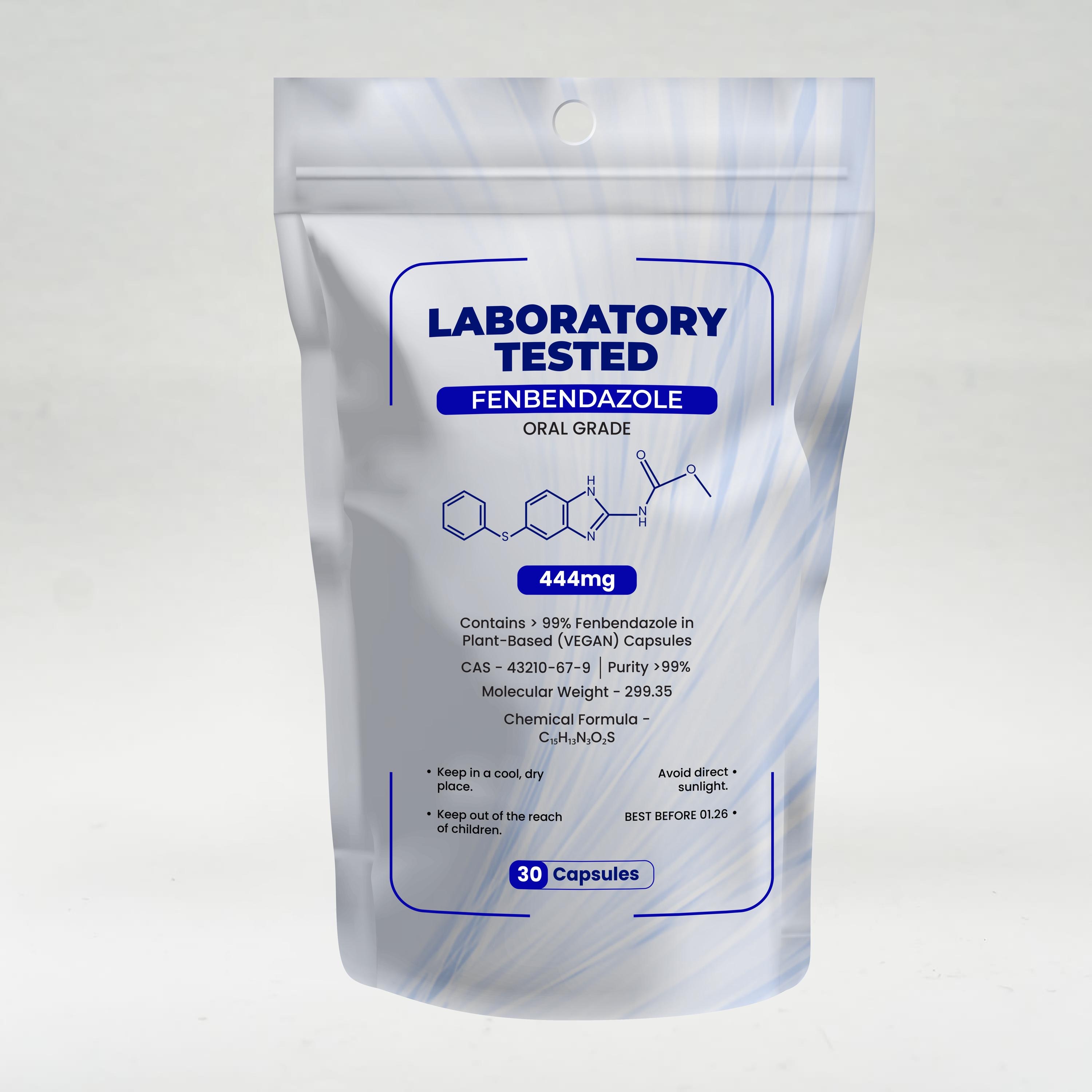Recognizing the Benefits and Uses of Fenbendazole in Veterinary Medicine
Fenbendazole has actually developed itself as an essential anthelmintic in veterinary medicine. Its capacity to target various parasitic infections makes it a valuable tool for vets. The drug's device interrupts essential cellular processes in parasites, causing effective therapy outcomes. Its safety account differs between species, necessitating cautious factor to consider in its use (fenbendazole capsules). Understanding these dynamics can shed light on fenbendazole's more comprehensive implications in veterinary treatment and ongoing research study right into its possible past conventional applications
System of Activity of Fenbendazole

Common Parasitic Infections Dealt With With Fenbendazole
A selection of parasitic infections are effectively treated with fenbendazole, making it a functional option in vet medication. This anthelmintic representative is particularly reliable against nematodes, including roundworms and hookworms, which typically impact dogs and pet cats. It is also used for the treatment of cestodes, such as tapeworms, supplying a wide spectrum of activity against both kinds of intestinal parasites. In addition, fenbendazole is advantageous in handling infections brought on by protozoa, especially Giardia, which can lead to gastrointestinal distress in animals. Its effectiveness includes dealing with specific lungworms in canines and felines, dealing with respiratory health concerns linked to these parasites. On the whole, fenbendazole's capacity to target numerous parasitical varieties makes it a useful device in vet technique, guaranteeing the health and wellness and wellness of pets affected by these typical infections.
Security and Efficiency in Various Animal Variety
The safety and security and efficiency of fenbendazole differ amongst different pet varieties, emphasizing the value of species-specific factors to consider in veterinary medication. In pooches, fenbendazole is usually well-tolerated and effective versus a series of stomach parasites, consisting of roundworms and hookworms. For felines, however, its use is less usual and might require mindful application as a result of possible damaging reactions.
In animals, such as livestock and lamb, fenbendazole demonstrates efficiency versus different endoparasites, adding to boosted wellness and performance. Nonetheless, the pharmacokinetics and potential side impacts can vary noticeably in between types, necessitating mindful assessment by veterinarians.
Horses additionally respond positively to fenbendazole, particularly for treating strongyles and ascarids, though dose and management courses have to be tailored to their distinct physiology. Recognizing these differences is vital for enhancing treatment outcomes and making certain pet well-being across diverse varieties.
Administration and Dosage Standards
Appropriate management and dose standards are essential for taking full advantage of the restorative results of fenbendazole while minimizing potential side results. The dose typically varies depending upon the types being treated, the particular problem, and the formulation of fenbendazole used. fenbendazole 444. For pet dogs and felines, an usual dose is 50 mg/kg body weight, carried out as soon as daily for three consecutive days, but veterinarians may adjust this based upon individual health and wellness analyses
It is essential to carry out fenbendazole with food to enhance absorption and minimize stomach trouble. The medicine is offered in various types, including granules and paste, enabling versatile administration alternatives. Monitoring the animal's action throughout and after treatment is a good idea to verify efficacy and safety. Additionally, vet support is crucial to identify the appropriate period of therapy based upon the kind of parasitic infection being attended to, guaranteeing ideal results for the pet's health.
Future Viewpoints and Research on Fenbendazole
Research study on fenbendazole remains to develop, concentrating on its prospective applications past standard antiparasitic usages. Current research studies have actually discovered its efficiency in treating numerous kinds of cancer cells, specifically in vet oncology. Initial information recommend that fenbendazole may hinder the growth of tumor cells and enhance the effects of other chemotherapeutic representatives.
Moreover, researchers are examining its function in handling food poisonings in animals, highlighting its anti-inflammatory homes. The flexibility of fenbendazole for different types elevates questions about its safety accounts and perfect application programs in diverse populaces.
As rate of interest grows, there is a need for extensive clinical tests to develop evidence-based standards for these unique applications. Future study may likewise explore the systems behind fenbendazole's results, possibly leading the way for innovative restorative methods in vet medication. The recurring expedition of fenbendazole can significantly improve treatment options for different vet problems.

Regularly Asked Questions
Is Fenbendazole Safe for Pregnant Animals?
The safety of fenbendazole for expecting animals stays unpredictable. While some studies recommend marginal threat, veterinarians typically advise care and typically discourage its usage throughout pregnancy unless the advantages plainly outweigh prospective threats.
Can Fenbendazole Be Made Use Of in Livestock?
Fenbendazole is typically made use of in animals to treat different parasitical infections. fenbendazole 444. Its efficiency against stomach worms makes it a useful anthelmintic, adding to improved health and wellness and efficiency in pets increased for food and fiber
What Are the Adverse Effects of Fenbendazole?

The side impacts of fenbendazole might include stomach disturbances, lethargy, and allergies. In uncommon instances, fenbendazole 222 extra severe reactions could occur, requiring careful tracking and consultation with a vet throughout treatment.
Just How Does Fenbendazole Contrast to Other Dewormers?
Fenbendazole uses broad-spectrum efficacy versus various parasites, frequently contrasting positively to other dewormers. Its distinct mechanism targets various life phases, making it reliable, while typically offering a favorable security profile compared to choices offered on the marketplace.
Can Fenbendazole Be Used for Treating Cancer Cells in Pet Dogs?
The possibility of fenbendazole in treating cancer in pets has amassed passion. Preliminary studies recommend it might hinder cancer cells cell development, yet even more research study is necessary to confirm its efficacy and safety and security in veterinary oncology.